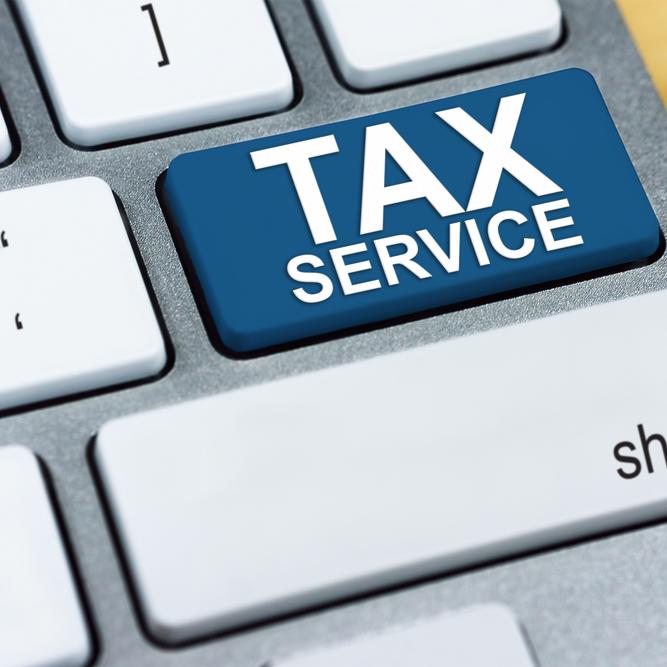Services provided by the Government or local authorities are generally not taxable as the same are covered under the negative list. However, there are certain activities which are still made taxable. Only those activities of the Government or local authorities are taxed where similar or substitutable services are provided by the private entities. The rationale behind taxing those activities of the Government or local authorities is to provide a level playing field to private entities in these areas as exemption to Government in such activities would lead to competitive inequities. Further to avoid break in Cenvat chain, it becomes necessary to tax such services as the support services provided by Government are normally in the nature of intermediary services.
For the Support services provided by the Government, to business entities government departments will not have to get registered because service tax will be payable on such services fully by the service receiver i.e. the business entities receiving the service under reverse charge mechanism in terms of the provisions of section 68 of the Act and the notification 30/2012-ST dated: 01.07.2012.However in respect of a few services like renting of immovable property & other services listed the Government department needs to obtain registration and discharge service tax liability at their own.
Meaning of ‘Support Services’
Support services have been defined in clause 49 of section 65B of the Act as ‘infrastructural, operational, administrative, logistic marketing or any other support of any kind comprising functions that entities carry out in ordinary course of operations themselves but may obtain as services by outsourcing from others for any reason whatsoever and shall include advertisement and promotion, construction or works contract, renting of movable or immovable property, security, testing and analysis.
Further the Education Guide issued by the CBEC in para 4.1.7 explained that the services which are provided by government in terms of their sovereign right to business entities, and which are not substitutable in any manner by any private entity, are not support services e.g. grant of mining or licensing rights or audit of government entities established by a special law, which are required to be audited by CAG under section 18 of the Comptroller and Auditor-General’s (Duties, Powers and Conditions of Service) Act, 1971 (such services are performed by CAG under the statue and cannot be performed by the business entity themselves and thus do not constitute support services.)
Recently, in a case of Mcleod Russel (India) Ltd. , Kolkata Vs. Union of India & Anr ( W.P. No.48 of 2014) a question was raised before the Kolkata High Court whether the service tax is applicable on the tea plantation owners on the fee/salary paid by them to the security guards constituted under the Assam Industrial Security Force (AISF) by the Govt. of Assam?
Facts of the case:
The petitioner M/s Mcleod Russel (India) Ltd. has been engaged in the business of Tea and has tea plantation in the State of Assam. The area in which such plantation is done is very volatile and disturbed. There is a constant threat of damage to the tea gardens, the establishment connected with them and their owners and staff rooms from miscreants. In those circumstances the Government of Assam has constituted Assam Industrial Security Force (AISF) under an agreement between the plantation owners and the government of Assam. It operates in sections, platoons, companies, battalions and so on. It does not have power to carry out any investigation. In case they detect the commission of any cognizable offence they have to report the same to nearest police station. For providing the service of this force, the Assam government charges the writ petitioner and other recipients of this service a fee. In other words, they ask the tea plantation owners to reimburse them of the salary they have to disburse to the members of this force.
The Service Tax Department pointed out that the above service provided by the Assam government to the writ petitioner would be considered as a security service and to be more specific a support service exigible to service tax in the hands of service receiver.
The petitioner challenged the said proposition of the Service Tax Dept. by way of Writ Petition in the Kolkata High Court.
Contention of the Petitioner:
It was argued that the members of the AISF are the servants of the State of Assam. Their appointment, management, discipline and pay are controlled by the State Govt. The services rendered by AISF are a part of the sovereign functions of the State and cannot be called “support service”. The State has an obligation to guard the frontiers of the country, ensure internal security, enacts laws, enforce them to do so on. The State has obligations with regard to maintenance of law and order, peace, prevention of crime in the tea growing and manufacturing area of the State. Attention was drawn to the list II entry I of the 7th schedule to the Constitution of India. This part of maintenance of internal security is the obligations of the State in the tea plantation areas have been delegated by it to the AISF. Discharging sovereign functions by the State cannot be equated with providing support service by it. A State can never charge any tax for discharge of sovereign functions. Hence there cannot be levy of any tax for rendering of service by AISF. This has also been recognized by the Department in its Education Guide to Service Tax. Further the arms that are entrusted with the members of this force are used by army personnel and are not available to an ordinary security force. So this force cannot be said to be ordinary security agency.
Contention of the Revenue:
The revenue, on the other hand, contended that these personnel are nothing but private security guards or watchmen who are provided by the State to the tea plantation owners for protection of their person and property. They were drawn from the AISF, no doubt but their functions were limited and personalized. As per the contract documents this force did not have any police power. It had no power to carry out any investigation. Hence the service tax is rightly applicable on the said service.
Findings and judgements:
The Hon’ble Court noticed that the affidavit –in-opposition filed by the revenue is silent about the basic foundation of the case with regard to the discharge of sovereign functions of the State by the AISF. Though it was argued from the bar that that the AISF is not discharging any sovereign functions but in absence of assertion in the affidavit-in-proposition, the court cannot take into account any statement made from the bar. Further the nature of the function of AISF is to protect the tea plantations and the personnel working therein against unlawful acts is also uncontroverted. Therefore, prima facie there is every indication that the service rendered by this force is a sovereign and hence not a “support service”. Further, the Hon’ble Gauhati High Court in a different case on different subject matter of All Assam Tea Plantation Security Vs. The State of Assam and Ors.(2003) 1 GLR 233 held that this force performs sovereign functions inasmuch as the members of the force under the direct operational and disciplinary control of the Police authorities are performing what are purely State functions.
That the maintenance of the security of the State was a sovereign function was emphasized in the judgment of the Supreme Court in M/s Bakhtawar Singh Bal Kishan Vs. Union of India (1988) 2 SCC 293.
The Court held that the value of sovereign functions of a State is not taxable in the hands of the citizens. ‘Support services’ rendered by the government are taxable. Now, whether the service in question is taxable or not is a question of fact and the department has jurisdiction and obligation to determine the same. The demand notice issued to the petitioner by the Service Tax Department is quashed and it will be open for the department to make a fresh adjudication following appropriate procedure taking into consideration the judgements discussed by the Court.
Author’s Comments:
The author draws attention to the para no: 4.1.8 of the Education Guide on the Service Tax wherein a question is raised as-
“4.1.8 Will the services provided by Police or security agencies to PSUs or corporate entities or sports events held by private entities be taxable?”
The said question was answered by the CBEC in affirmative and confirmed that tax will be actually payable on reverse charge by the recipient. But this point/clause is either not put up before the Hon’ble High Court or the same is not touched upon by the Court in the instant order passed. Thus CBEC has made it very clear that the services provided by the Police to private entities falls under the purview of Service Tax.
Now, as we understand that the basic function of Police is to provide security and to maintain law and order. The Police authorities have got wide powers coupled with duties and responsibilities to ensure protection of the citizens. They can register FIR, file charge sheet and prosecute the miscreants or culprits in the court of law. But as against this, the normal /other security agencies are not empowered with those powers. So it can well be said that the service rendered by Police is not at all substitutable in any manner. So, here comes a question that if the services of Police are exclusive in nature then why it has been clarified as taxable? So, the author could not understand that on the one hand it has been stated that services provided by government in terms of their sovereign right to business entities are not taxable whereas on the other hand the services provided by Police are clarified as taxable service. Thus it implies that the services rendered by Police are either not sovereign in nature or there exists still an ambiguity on this matter. The author feels that clarity on this point is very crucial and will have an impact on the instant case too. Let us wait and watch till further clarification on the matter comes.
*The author is a practicing chartered accountant at Guwahati and can be reached at: manoj_nahata2003@yahoo.co.in



